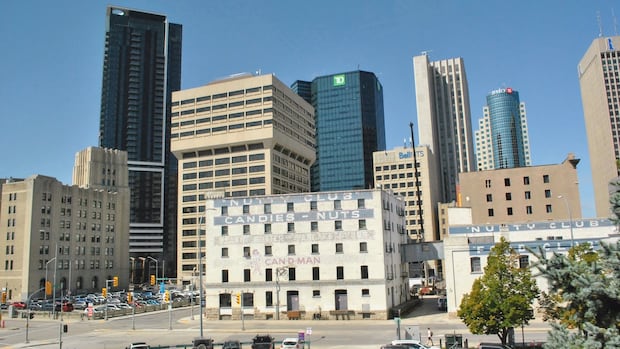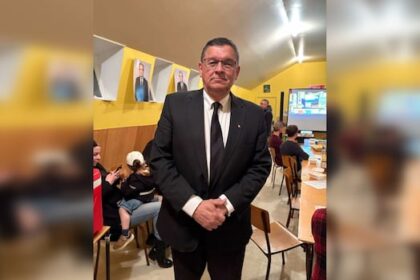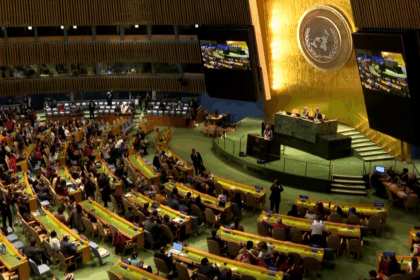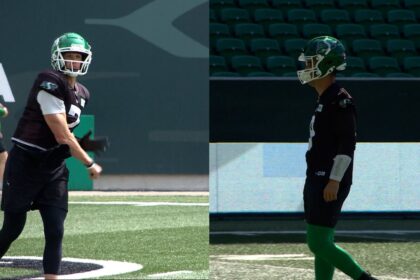ManitobaThe City of Winnipeg’s spending plan for 2026 calls for a 3.5 per cent property tax hike and a commitment to spend $500 million on the third and final phase of the upgrades to the city’s largest sewage-treatment plant.Spending plan for next year includes $500M for final phase of North End sewage plant upgradesBartley Kives · CBC News · Posted: Nov 13, 2025 6:36 PM EST | Last Updated: 3 hours agoListen to this articleEstimated 3 minutesThe audio version of this article is generated by text-to-speech, a technology based on artificial intelligence.Winnipeg plans to raise property taxes by 3.5 per cent in 2026. (Darren Bernhardt/CBC)The City of Winnipeg’s spending plan for 2026 calls for a 3.5 per cent property tax hike and a commitment to spend $500 million on the third and final phase of the upgrades to the city’s largest sewage-treatment plant.Winnipeg Mayor Scott Gillingham said Thursday the city budget for next year will include a return to the same property-tax increases the city experienced in 2023 and 2024, the first two budget years for this mayor.In 2025, the city raised the total pool of taxes it collects on properties by 5.95 per cent, the highest hike of its kind in Winnipeg since 1990.Gillingham confirmed the hike will return to 3.5 per cent in 2026 as part of a budget that will be made public at a special meeting of city council’s executive policy committee on Friday afternoon.A property-tax increase of 3.5 per cent will raise about $28 million of additional revenue. Property taxes are the largest source of revenue for the city.The total operating budget — that is, city spending on services such as policing, snow removal and insect control — is expected to approach $1.5 billion in 2026.Gillingham said he is not relying on the property-tax increase alone to ensure the city balances its operating budget, as the city has no choice but to do under the legislation that governs Winnipeg.“We expect all of our departments to control their costs and come in on budget,” Gillingham said in an interview.The capital budget, which encompasses city spending on infrastructure, equipment and other one-time expenses, will include approximately $500 million toward the final phase of upgrades to the North End Water Pollution Control Centre, the largest of Winnipeg’s three sewage treatment plants.The first two phases of these upgrades involve a new intake for the plant and a facility to remove pathogens and chemicals from partly treated human waste and convert the remaining solids into a material safe enough to be applied to agricultural fields as fertilizer.The final phase of the project involves removing nutrients such as phosphorus and nitrogen from the liquid effluent that flows back into the Red River. The province ordered the city to make these upgrades in 2003 as part of an effort to reduce the flow of nutrients into the Lake Winnipeg watershed, where they promote the growth of algae.Gillingham said the city also has to complete the upgrades because the North End plant is running out of capacity to treat sewage.“We have only a few years of capacity left, four to six years of capacity left in the plant,” he said, adding the failure to do so would impair the city’s ability to develop more housing and provide services for businesses.The total cost of the final phase of the North End sewage-treatment project is pegged at $1.5 billion. Gillingham said he is hopeful the provincial and federal governments will cover the remaining billion-dollar tab.The mayor said the budget will also address spending commitments for the widening of Kenaston Boulevard and the extension of Chief Peguis Trail, two large projects that do not enjoy unanimous support from the rest of city council.
Thursday, 5 Mar 2026
Canada – The Illusion
Search
Have an existing account?
Sign In
© 2022 Foxiz News Network. Ruby Design Company. All Rights Reserved.
You May also Like
- More News:
- history
- Standing Bear Network
- John Gonzalez
- ᐊᔭᐦᑊ ayahp — It happened
- Creation
- Beneath the Water
- Olympic gold medal
- Jim Thorpe
- type O blood
- the bringer of life
- Raven
- Wás’agi
- NoiseCat
- 'Sugarcane'
- The rivers still sing
- ᑲᓂᐸᐏᐟ ᒪᐢᑿ
- ᐅᑳᐤ okâw — We remember
- ᐊᓂᓈᐯᐃᐧᐣ aninâpêwin — Truth
- This is what it means to be human.
- Nokoma











